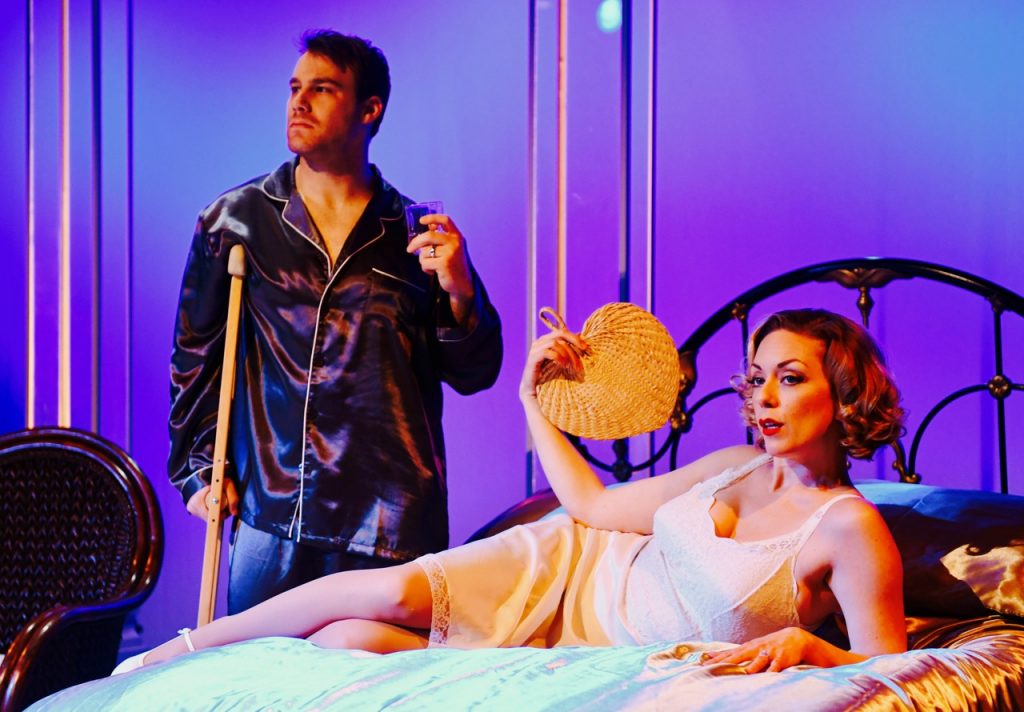Meeeeow. San José Stage Company’s production of Tennessee Williams’ Cat on a Hot Tin Roof isn’t just hot. It’s scorching. With dynamic and nuanced performances from all the cast, Director Lee Sankowich’s Cat gets you in its claws you from the start and never lets go.
The setting is Big Daddy Pollitt’s 65th birthday. His family and various hangers-on are gathered at his cotton plantation trying to claw their way into his favor, because they know — as Big Daddy doesn’t yet — that he’s dying.
Among them are his son Brick — Big Daddy’s favorite, a football has-been and current alcoholic — Brick’s wife Maggie, the sexy “cat” who is determined to keep her hold on the “hot tin roof” — a share of Big Daddy’s 28,000 acre plantation — and Brick’s now-dead buddy Skipper, an unseen presence making Brick and Maggie’s marriage a haunted ménage et trois.
San José Stage’s intimate theater-in-the-round draws you deep into William’s Southern Gothic cocktail of repressed sexuality, arrested development, alcoholism, family dysfunction, social decay and “mendacity” — what Big Daddy calls “one of them five-dollar words that cheap politicians throw back and forth.”
Allison Rich’s Maggie could singe your hair. She repels with her relentless attacks on Brick’s alcoholism and failures, and at the same time compels your sympathy for her because she, too, is a victim, telling Brick: “I’m not living with you. We occupy the same cage.”
Randall King, San José Stage’s co-founder and artistic director clearly relishes the role of Big Daddy, playing the wealthy planter with great heart and not simply as a wealthy, overbearing vulgarian. His delivery of Big Daddy’s “mendacity speech” is unforgettable.
Rob August’s charged portrayal of Brick makes you feel that an explosion is immanent every second from the time he first steps on the stage in act one.
As the details of Brick’s relationship with Skipper and Maggie’s role in it are revealed, August’s portrayal leaves open the question of whether Skipper was Brick’s Huck-Finn-and-Jim childhood relationship — the name “Skipper” is certainly juvenile — or whether the two were lovers. August plays this ambiguity deftly and doesn’t let either interpretation take over the character.
The play never reveals what Brick and Skipper spoke about on the phone the night before Skipper committed suicide, but it is clear that it is that the insertion of Maggie, the incarnation of sex, into the twosome forced them to face adulthood in one of its most important dimensions. Skipper’s response is suicide and Brick’s is booze.
In the end, all mendacity stands revealed. But whether the moment of clarity is lasting or ephemeral, Tennessee Williams gives no clue. But one thing is clear: the cat’s not going to be forced off that hot roof.
San José Stage’s Cat on a Hot Tim Roof plays Wednesday through Sunday through March 3, 2019. www.thestage.org
